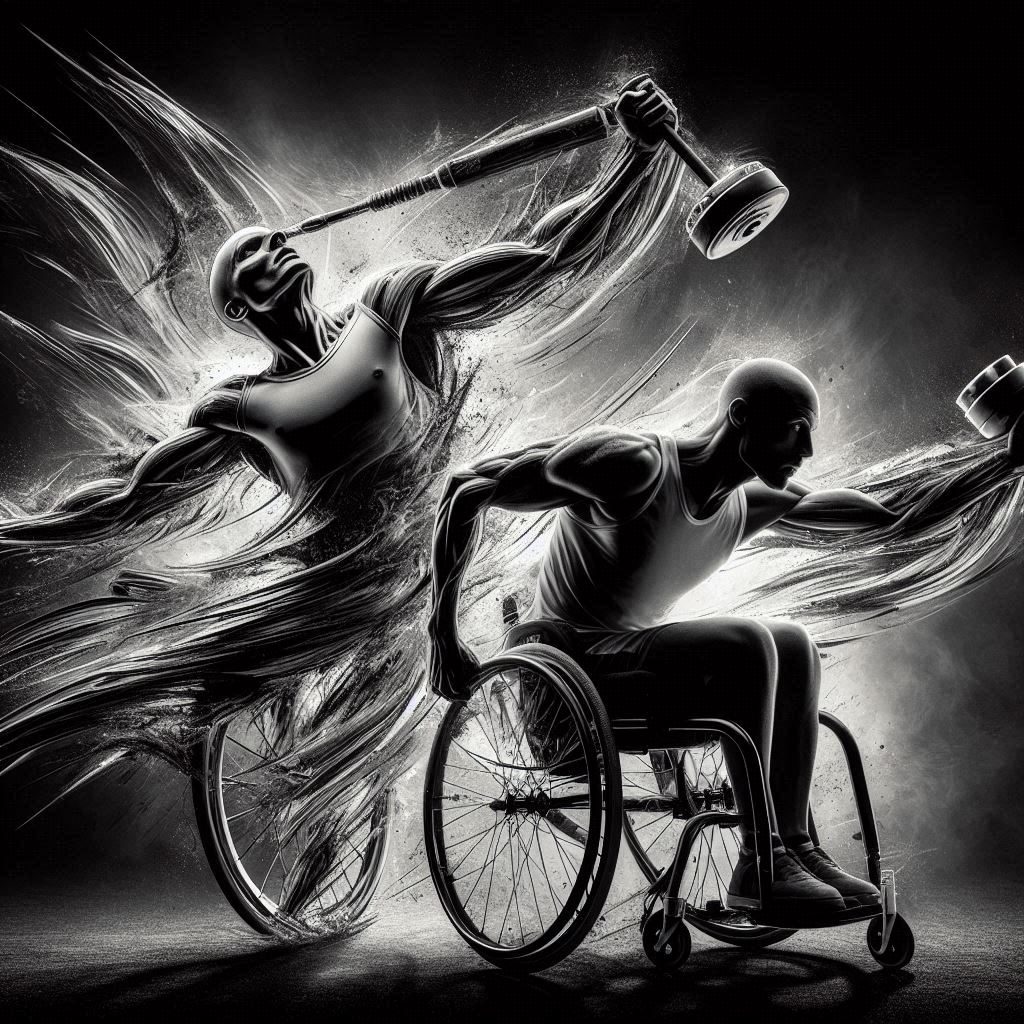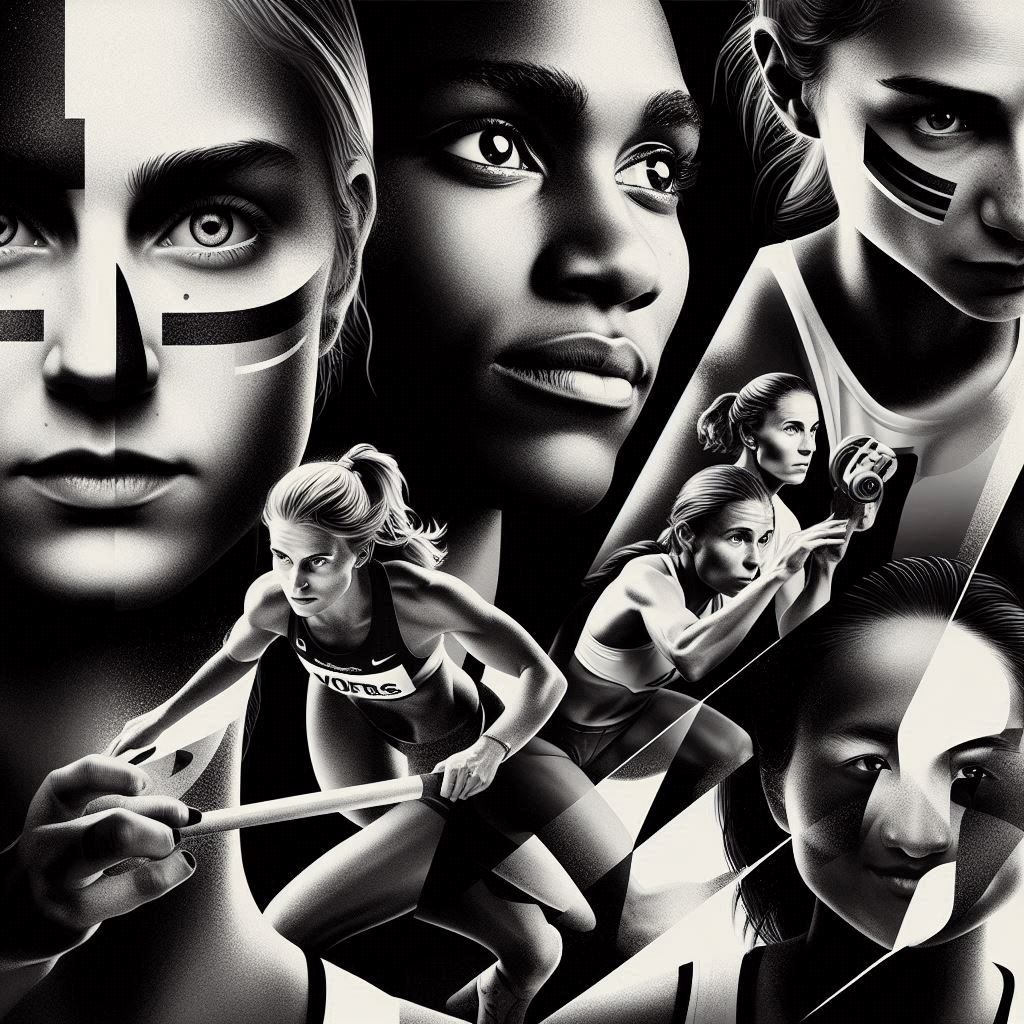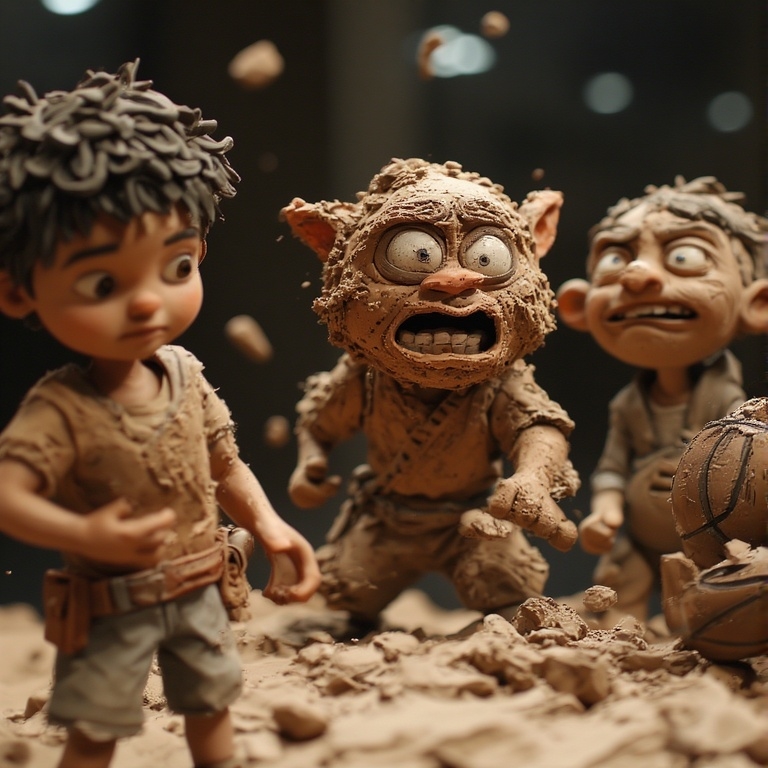Para Athletes Beyond Physical Differences
Para Athletes Vs. Able-Bodied Athletes
When we think about athletes, we often focus on their physical abilities and achievements. However, there’s much more to consider, especially when comparing para athletes and able-bodied athletes. While physical differences are evident, there are several other aspects that set these two groups apart. Let’s explore these differences and celebrate the unique qualities of both.
Training and Adaptation
Para athletes often require specialized training programs tailored to their specific needs and abilities. This includes adaptive equipment, modified techniques, and personalized coaching. Able-bodied athletes, on the other hand, follow more conventional training regimens. The adaptability and resilience of para athletes in overcoming physical challenges are truly inspiring.
Mental Toughness and Resilience
Both para athletes and able-bodied athletes exhibit incredible mental toughness. However, para athletes often face additional psychological challenges, such as overcoming societal stereotypes and dealing with the emotional impact of their disabilities. Their journey to success often involves a higher degree of resilience and determination.
Access to Resources and Support
Access to resources and support can vary significantly between para athletes and able-bodied athletes. Para athletes may face barriers in accessing training facilities, sponsorships, and medical support. Despite these challenges, many para athletes excel and achieve remarkable success, highlighting their resourcefulness and determination.
Representation and Visibility
Para athletes often have to work harder to gain visibility and recognition in the sports world. While able-bodied athletes frequently enjoy widespread media coverage and sponsorship opportunities, para athletes may struggle to receive the same level of attention. However, events like the Paralympics have significantly improved the visibility and representation of para athletes on the global stage.
Community and Advocacy
Para athletes often become advocates for disability rights and inclusion, using their platform to raise awareness and promote positive change. Their experiences and achievements inspire others and contribute to a more inclusive society. Able-bodied athletes also play a role in advocacy, but the focus and impact can differ.
Inspiration and Role Models
Both para athletes and able-bodied athletes serve as role models and sources of inspiration. Para athletes, in particular, demonstrate that physical limitations do not define one’s potential. Their stories of perseverance and triumph resonate with people of all abilities, encouraging everyone to pursue their dreams.

Beyond Physical Differences
——————————-
A Unified Perspective
When comparing para athletes and able-bodied athletes, it’s essential to move beyond merely viewing them through the lens of physical differences. Instead, we should focus on the shared qualities and values that define all athletes, regardless of their physical abilities.
Passion and Dedication
Both para athletes and able-bodied athletes exhibit an unwavering passion for their sport. Their dedication to training, competing, and constantly improving is a testament to their love for what they do. This shared passion unites athletes across all disciplines and abilities.
Skill and Technique
Athleticism is not solely defined by physical prowess. Skill, technique, and strategic thinking play crucial roles in an athlete’s success. Para athletes and able-bodied athletes alike demonstrate exceptional mastery of their respective sports, showcasing their talent and expertise.
Teamwork and Sportsmanship
The values of teamwork and sportsmanship are universal in the world of sports. Whether competing individually or as part of a team, athletes from both groups understand the importance of collaboration, respect, and fair play. These values foster a sense of camaraderie and mutual respect among athletes.
Inspiration and Impact
Athletes, regardless of their physical abilities, have the power to inspire and make a positive impact on society. Their stories of perseverance, triumph, and resilience resonate with people from all walks of life. By celebrating their achievements, we can promote a more inclusive and supportive sports community.
Breaking Barriers
Both para athletes and able-bodied athletes contribute to breaking down barriers and challenging societal norms. They redefine what is possible and inspire others to push beyond their limits. Their achievements pave the way for future generations of athletes to pursue their dreams without limitations.

Perception and Equality
——————————–
Why Are They Viewed Differently?
The world often views para athletes and able-bodied athletes through different lenses, influenced by various factors. Understanding these perceptions can help us address biases and promote equality in sports.
Historical Context and Stereotypes
Historically, people with disabilities have faced significant societal barriers and stereotypes. These outdated views have contributed to the perception that para athletes are fundamentally different from able-bodied athletes. Overcoming these stereotypes requires a shift in mindset and a recognition of the abilities and achievements of para athletes.
Media Representation
Media coverage plays a crucial role in shaping public perception especially in parasports and this whole industry. Able-bodied athletes often receive more extensive media coverage, sponsorships, and recognition compared to para athletes. This disparity can reinforce the notion that able-bodied athletes are more “mainstream” or “elite.” Increasing media representation of para athletes can help bridge this gap and highlight their accomplishments.
Awareness and Education
Many people may not be fully aware of the challenges and triumphs of para athletes. Lack of basic knowledge, awareness can lead to misconceptions and biases. Education and exposure to para sports can help people appreciate the skill, dedication, and resilience of para athletes, fostering a more inclusive perspective.
Should They Be Viewed Differently?
In an ideal world, athletes should be celebrated for their achievements, dedication, and passion, regardless of their physical abilities. While it’s important to acknowledge and accommodate the unique needs of para athletes, the focus should be on their athletic prowess and contributions to the sports community.
Equality and Inclusion
Viewing athletes through a lens of equality and inclusion means recognizing their shared qualities and values. Both para athletes and able-bodied athletes demonstrate exceptional skill, determination, and sportsmanship. By celebrating these commonalities, we can promote a more inclusive sports culture.

Breaking Down Barriers
Challenging societal norms and breaking down barriers is essential for achieving true equality in sports. Para athletes and able-bodied athletes alike contribute to this effort by pushing boundaries and redefining what is possible. Their achievements inspire others and pave the way for future generations.
Unified Celebration
Ultimately, athletes should be celebrated for their dedication, talent, and impact on society. By moving beyond physical differences and focusing on the essence of athleticism, we can create a more supportive and inclusive sports community for all.
Conclusion
In the world of sports, the differences between para athletes and able-bodied athletes extend far beyond physical abilities. While it’s important to acknowledge and accommodate the unique needs of para athletes, we must also recognize the shared qualities that define all athletes: passion, dedication, skill, and resilience.
By moving beyond physical differences and focusing on the essence of athleticism, we can foster a more inclusive and supportive sports community. Para athletes and able-bodied athletes alike contribute to breaking down barriers, challenging societal norms, and inspiring others with their achievements.
It’s time to celebrate all athletes for their dedication, talent, and impact on society. By promoting equality and inclusion, we can create a world where every athlete is valued and celebrated for their contributions to sports, regardless of their physical abilities.
Join the Discussion
We’d love to hear your thoughts on the differences and similarities between para athletes and able-bodied athletes. How do you think we can promote greater equality and inclusion in the world of sports?
Questions to Consider:
What are some ways we can increase visibility and recognition for para athletes?
How can we challenge and change societal stereotypes about athletes with disabilities?
What role do media and sponsorships play in shaping public perception of athletes?
How can able-bodied athletes and para athletes work together to create a more inclusive sports community?
Your voice matters! Let’s come together to celebrate the achievements of all athletes and work towards a more inclusive and supportive sports culture.
Hashtags
#ParaAthletePower #UnifiedSportsCommunity #InclusionMatters #EqualityInAthletics #BreakingBoundaries #SportsmanshipUnites #AthleticExcellence #InspiringJourneys #ResilientAthletes #PassionForPerformance #AdaptiveAthletics #DisabilityChampions #ParaSportsHeroes #AdvocacyThroughSports #CelebratingDiversity #InclusiveAthletics #AthleteAchievements #SportsWithoutLimits #VisibilityForParaAthletes #EmpowermentInSports #DiverseAthleteVoices #ChampioningEquality #AthleteAdvocates #SportsForAll #BreakingStereotypes #UnifiedAthleteStories #InclusiveSportsCulture #AthleteInspiration #SportsEqualityNow #UnifiedAthleteCommunity






2 Comments
Comments are closed.